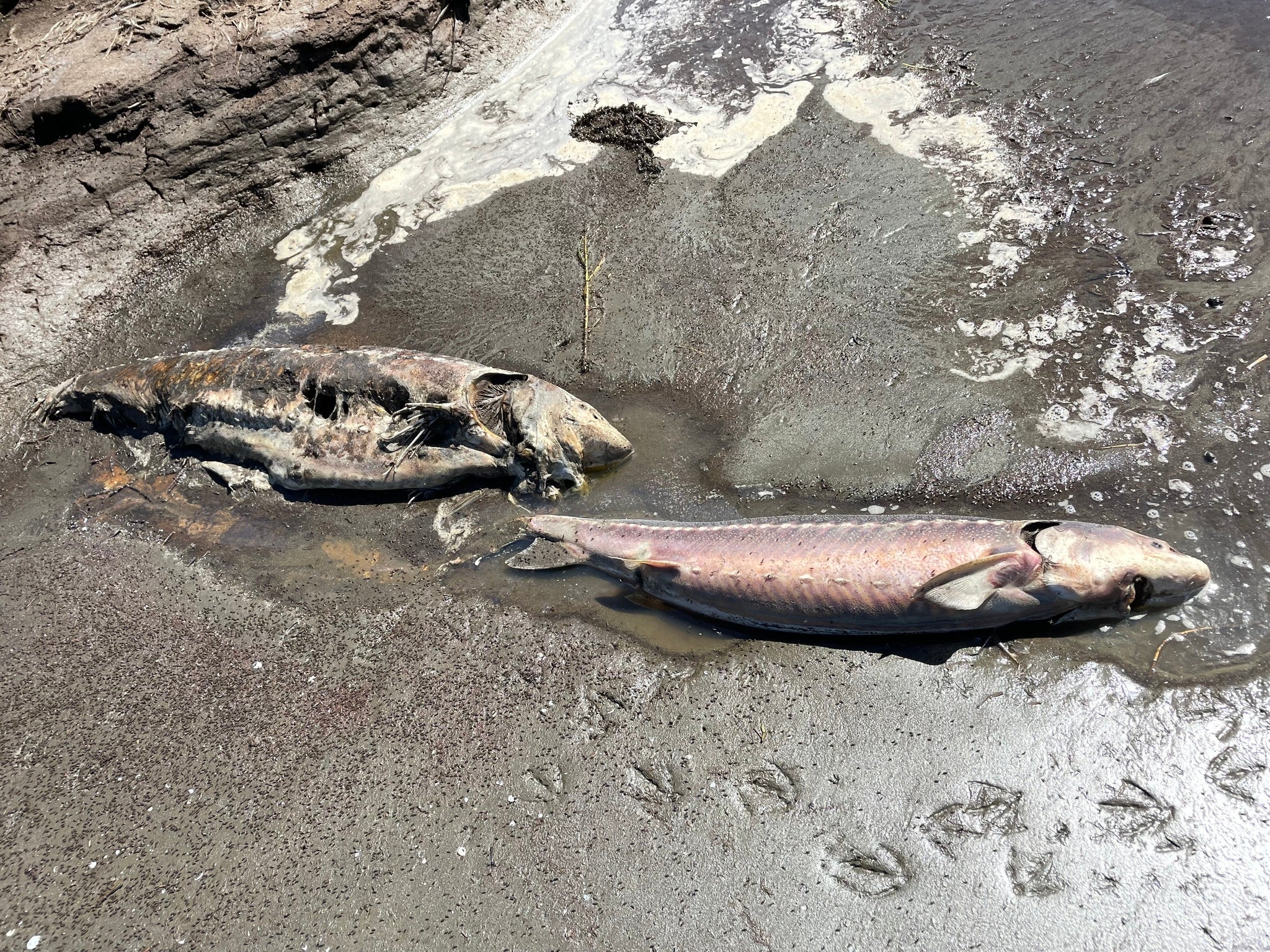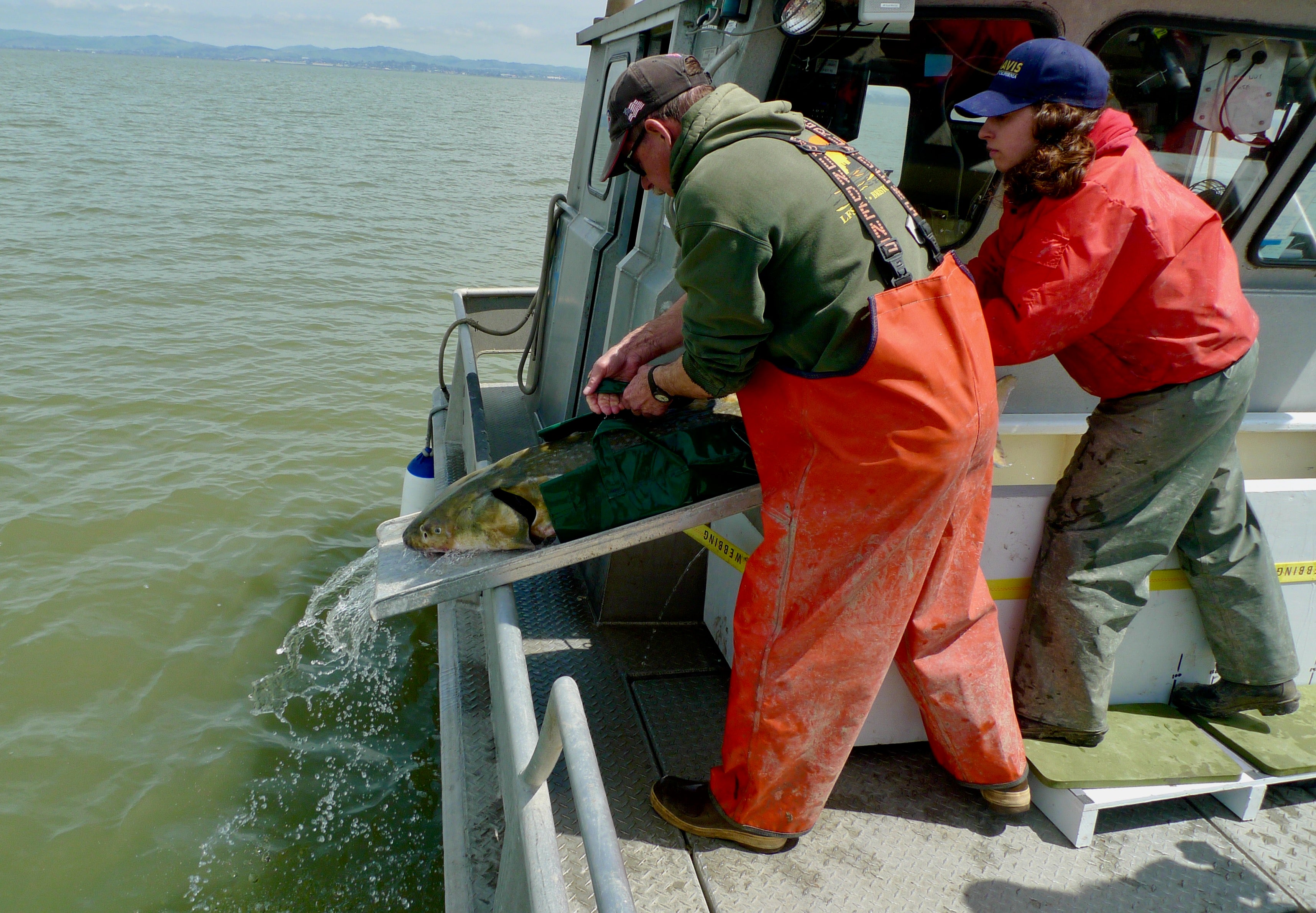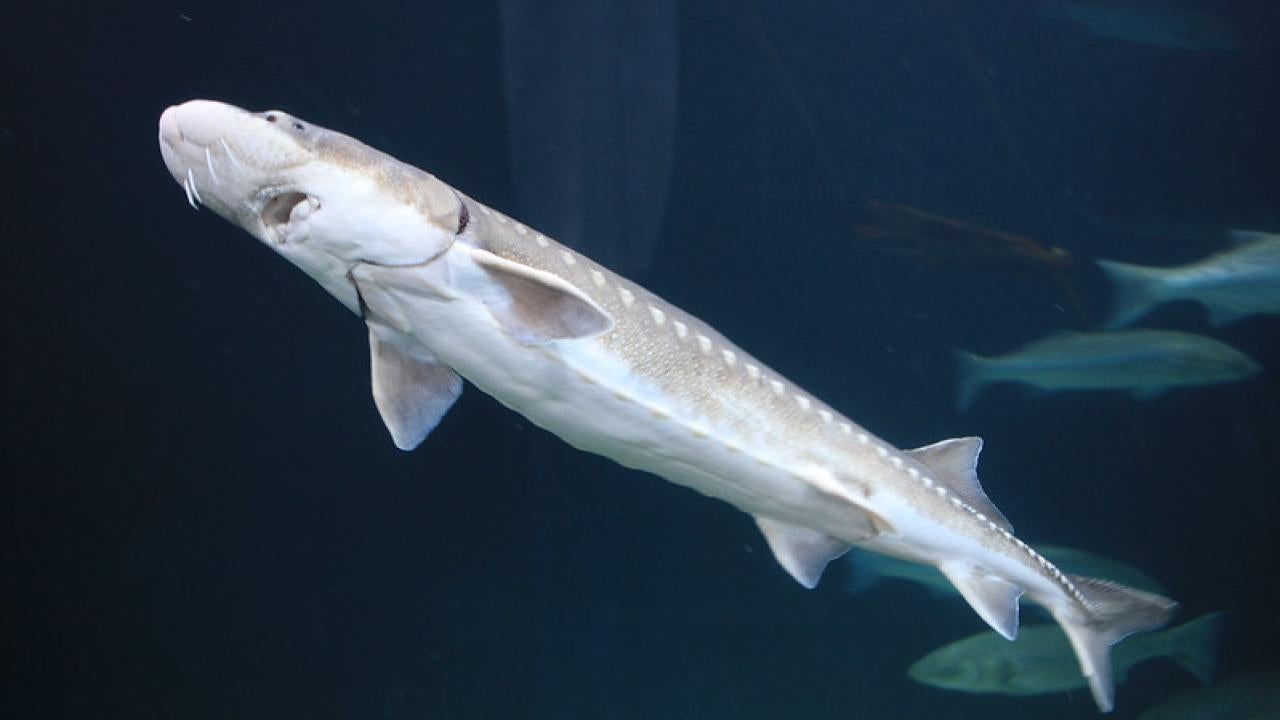White sturgeon have been through a lot. These giant, ancient fish that once lived among dinosaurs have survived a meteor strike, shifting continents, and the arrival of humankind. More recently, they’ve been resilient in the face of invasive species, mining pollution, and the remaking of rivers by dams and levees.
But now, a team of researchers from the UC Davis Center for Watershed Sciences say these fish may be facing extinction in California. In this month’s California WaterBlog, they describe their concerns for white sturgeon and offer suggestions for how to help them.
“Suddenly the future of these ancient fish does not seem so secure,” write the researchers in the blog post led by Andrea Schreier, director of the UC Davis Genomic Variation Lab.
Hundreds of sturgeon died in the San Francisco Estuary this past August to early September when the estuary experienced a bloom of “red tide” alga. Poisoning, asphyxiation, or both could have contributed to the fish kill, but a cause of death is not yet confirmed.

Regardless, it was the most massive kill of sturgeon ever recorded in the estuary. Additional sturgeon mortality events took place this summer in Idaho, Canada and Europe, the authors write. Such events are expected to increase as extreme heat waves become more prevalent.
“The harmful algal bloom has somewhat fallen off of people's radars given the news cycle, but the effects may be long-lasting, especially for species that were already vulnerable, like our white sturgeon population,” Schreier said following the blog post.
Action items
Because white sturgeon don’t reproduce until they are between 10 and 16 years old, and because their offspring don’t survive well in drought years, it will likely take decades for the population to recover, the authors note. If white sturgeon continue to be fished at current rates, it could delay or even prevent recovery of this species, the researchers wrote, adding: “Action needs to be taken now.”
In the edited excerpt below, the scientists suggest the following actions be taken to help protect California white sturgeon and allow this species’ millennia-long journey to continue well into the future:
- “Consider temporarily making fisheries for white sturgeon catch-and-release, while recruiting sturgeon anglers as citizen scientists to help with life-history investigations.
- Provide transparent updates to stakeholders and the public on the causes of the kill, number of fish killed as a proportion of the total population size, and possible management actions.
- Continue to support and expand existing long-term sturgeon monitoring efforts to include all life-history stages and habitats. This will help determine population size and dynamics, and life-history requirements.
- Determine the causes of all sturgeon kills, major and minor, in part by expanded water quality and harmful-algal-bloom monitoring throughout the estuary. Funding may also be needed for rapid responses to mass mortality events, including robust carcass surveys and necropsies to verify cause of death.”
Read the full blog post, “White Sturgeon: Is An Ancient Survivor Facing Extinction in California” at CaliforniaWaterBlog.com.
Subscribe to the Science & Climate newsletter

Sturgeon in Our Midst
Hidden Migrations of Underwater Giants
Media Resources
Kat Kerlin is an environmental science writer and media relations specialist at UC Davis. She’s the editor of the “What Can I Do About Climate Change?” blog. kekerlin@ucdavis.edu. @UCDavis_Kerlin
